Speaker Bios

Dr. Kathy Baisley
Kathy Baisley is an Associate Professor of Medical Statistics and Epidemiology at London School of Hygiene and Tropical Medicine (LSHTM), and head of the Data Science Unit at the Africa Health Research Institute (AHRI) in KwaZulu Natal, South Africa. For the past 16 years, she has been living and working in sub-Saharan Africa (SSA). She has extensive experience in epidemiological research and clinical trials related to the prevention of HIV, HPV and other sexually transmitted infections. She has been the lead statistician and co-PI/co-Investigator on a number of large intervention trials in SSA, including three HPV vaccine trials in Tanzania. She is the co-PI on a large ongoing randomised controlled trial to assess the immunogenicity of a 1-dose HPV vaccine schedule (the DoRIS trial), and of a new cluster-randomised trial to examine the impact of single dose HPV vaccination in boys on population prevalence of HPV. Her other areas of interest include HPV epidemiology and the role of the vaginal microbiome in determining susceptibility to HIV and other sexually transmitted infections, particularly around the time of sexual debut. She is also the Programme Director of the Medical Statistics MSc at LSHTM.

Dr. Ruanne Barnabas
Ruanne V Barnabas, MD, Phil is a Professor in Global Health and Infectious Diseases at the University of Washington and affiliate at the Fred Hutchinson Cancer Research Center. She is a South African Physician-Epidemiologist. Her research focuses on interventions for HIV and sexually transmitted infection (STI) treatment and prevention. She is the Protocol Chair of the KEN SHE Study to assess the impact of single-dose HPV vaccination in Kenya. A key focus of her work is testing client-centered approaches to deliver effective interventions. She is the Protocol Chair of the Delivery Optimization for antiretroviral (DO ART) Study, which will evaluate the effectiveness and cost-effectiveness of community-based treatment for HIV compared to clinic-based care. She also leads work assessing innovative strategies to increase access to care including lottery incentives and home delivery. Recently, her work has extended to COVID-19 prevention. The ultimate aim of her work is to identify effective and scaleable HPV, HIV, and infectious disease treatment and prevention strategies to increase access across diverse communities and promote equity in health.

Dr. Niranjan Bhat
Niranjan Bhat is a pediatric infectious disease physician, vaccine researcher, and medical epidemiologist. He received a BA from Harvard, his MD from Vanderbilt, and pediatrics training at the University of Washington in Seattle. He then joined the CDC as an Epidemic Intelligence Service Officer after which he trained in Pediatric Infectious Diseases and served on faculty at Johns Hopkins. He subsequently worked as a clinical reviewer in the US FDA Office of Vaccines before joining PATH in 2014, where he now serves as a Senior Medical Officer leading PATH’s Vaccine Impact Research team. With an initial emphasis on pediatric respiratory infections in low-resource settings, his work now focuses on developing and delivering vaccines against a broad range of pathogens, with continued attention to women and children in low and low-middle income countries.

Dr. Neil Christensen
Dr Neil D. Christensen is a professor of Pathology and Microbiology and Immunology at the Penn State University, College of Medicine, Pennsylvania, USA. Dr. Christensen has over 30 years research experience in the fields of immunology and microbiology. The current focus of his research is preclinical models to study oncogenic viruses and stems from training in the fields of immunology and virology with emphasis on animal models of papillomavirus and Epstein Barr Virus infections and a desire to understand how the immune system combats persistent infections and cancers. A second major component of his research involves the construction of a large and diverse set of monoclonal antibodies to various viral and host proteins with particular strength in probes that recognize Human Papillomaviruses and other viral capsids that have virus neutralizing activities. At PSU he is currently Director of the Gittlen Laboratories for Cancer Research, and the PSU Antibody Core. He has published over 190 peer-reviewed publications in scientific journals and received an American Social Health Association Fellowship in 1988. In 2018 he received a Faculty Scholar Award, Entrepreneurial activities, from Penn State University. Prof. Christensen received a Bachelors and Masters of Science degrees in Zoology from Auckland University, N.Z. in 1976 and 1978 respectively, and a Ph.D. degree in Cell Biology from Auckland University, N.Z. in 1984. He completed post-doctoral studies at Penn State University, College of Medicine, from 1984-1988 and obtained a faculty position as an Assistant Professor at this institution in 1992.

Dr. Peter Dull
Peter is Deputy Director for Integrated Clinical Vaccine Development within the Global Health Division at the Bill and Melinda Gates Foundation. In this role he provides technical and strategic guidance on clinical development to the foundation’s program strategy teams (Pneumonia, Enteric and Diarrhea Diseases, Malaria, etc.) and external partners. In addition, he leads the foundation’s vaccine development activities for HPV vaccines, including efforts on new product development and reduced dose schedules. He joined the foundation after 10 years at Novartis Vaccines and Diagnostics where he was the Clinical Franchise Head for Meningitis and Sepsis Vaccines, leading the clinical development global licensure of MenACWY-CRM (Menveo) and 4CMenB (Bexsero). During the ongoing Covid-19 pandemic, in addition to providing direct support for grantees developing new COVID-19 vaccines, he co-leads the COVAX Clinical SWAT team providing product-agnostic support to developers to accelerate vaccine licensure and WHO pre-qualification with an LMIC focus. Prior to joining Novartis, he was an Epidemic Intelligence Service officer in the Meningitis and Special Pathogens Branch at the US Centers for Disease Control and completed subspecialty training in infectious diseases at Emory University.
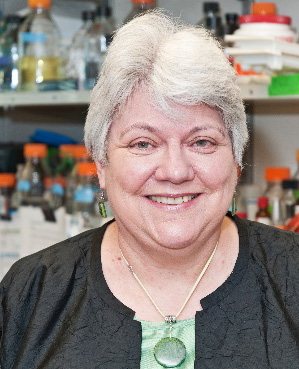
Dr. Denise Galloway
Denise A. Galloway, PhD, is the Director of the Pathogen Associated Malignancies Integrated Research Center, and Member of the Human Biology and Public Health Sciences Divisions at the Fred Hutchinson Cancer Research Center. She is also a Research Professor in the Departments of Microbiology and Global Health at the University of Washington. Dr. Galloway’s research has taken a broad-based approach to study the role that small DNA tumor viruses i.e. human papillomaviruses (HPV) and human polyomavirus (HPyV) play in the development of cancers. She has identified mechanisms by which the HPV E6 and E7 oncogenes promote genetic instability causing deficiencies in repairing DNA damage, providing new therapeutic targets for HPV associated malignancies. Her lab was among the first to isolate virus-like particles, which became the basis for prophylactic HPV vaccines and serologic assays. In collaboration with epidemiologists, biostatisticians and clinicians her lab helped define the natural history of HPV infections in young women and men, which was critical in the design of HPV vaccine trials. Her most recent studies have developed new techniques to characterize the long-term memory B cell responses to HPV vaccination. She has trained over 50 post-doctoral fellows and graduate students. She serves on several editorial boards, grant review committees and National Cancer Institute (NCI) Boards. She is an elected Fellow of the American Academy of Arts and Sciences, the American Academy of Microbiology and the American Association for the Advancement of Science. She is funded by several grants including an NCI Outstanding Investigator Award. She is the recipient of the Paul Stephanus Memorial Endowed Chair and an American Association of Cancer Research Team Science Award for leading an interdisciplinary team working on HPV associated cancers.

Dr. Aparna Kasinath
Aparna Kasinath is currently Head, Large Molecule Bioanalytical Laboratory (GLP/GCLP), Syngene International Limited, Bangalore, India. Aparna has over 19 years of experience in bioanalytical assays supporting large molecule drug development. Aparna is specialized in developing/transferring and validating Immunoassay methods in support of clinical trials for PK, PD, and Immunogenicity endpoints. In addition, she has worked on assays for diverse classes of large molecules that include novel biologics, biosimilars, and vaccines. Aparna works closely with her team, partners, collaborators, and clients to design and validate assays fit for their scientific and clinical safety, efficacy interpretation purposes. In her current role, Aparna is also responsible for driving scientific and growth strategies for the laboratory. Aparna has a Ph.D. (Microbiology) from Sardar Patel University, Gujarat, India, and was selected as a UNESCO fellow to the Czech Academy of Sciences, Prague- as a part of her Ph.D. program. Aparna is an active member of various global scientific groups and works to synchronize Indian bioanalytical assay practices with global regulatory requirements; and strives to bring out the Indian bioanalytical perspective on a global platform for effective standardization.
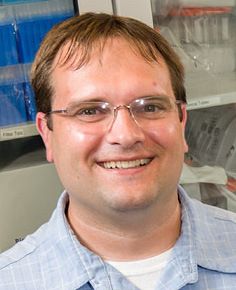
Dr. Troy Kemp
Troy Kemp, Ph.D. is a Scientific Manager II in the HPV Serology Laboratory at the Frederick National Laboratory for Cancer Research. In this position, he manages the production of HPV L1L2 Virus-Like Particles (VLP), generation of HPV secondary standards for immunoassays, testing, and data analysis/compilation. Previously, as a Scientist I, he was responsible for managing the testing, data analysis/compilation, and data delivery of several large epidemiological studies of cancer to evaluate immune signatures predictive of cancer risk using multiplex cytokine assays. He is also involved in the development and validation of the multiplex cytokine assays in various body fluids (serum/plasma, cervical secretions, bile, and saliva). His postdoctoral research focused on investigating immune parameters such as functional antibody responses as well as measuring cytokines from various sources (cervical secretions, serum, and saliva) in clinical trials of women vaccinated with a human papillomavirus (HPV)16/HPV18 L1 VLP vaccine. His postdoctoral training and involvement with epidemiological studies has given him extensive experience with developing, validating, analyzing and interpreting large volumes of samples/ data in various assays (multiplex cytokine assays and neutralization assays).
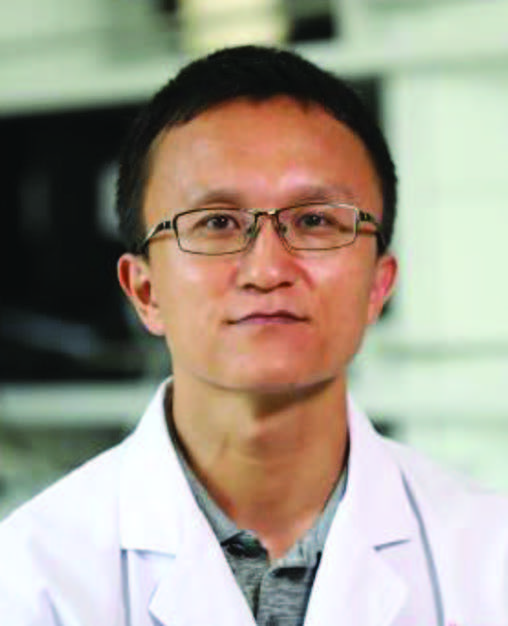
Dr. Jianhui Nie
Jianhui Nie is a professor in Division of HIV/AIDS and Sex-transmitted Virus Vaccines at the National Institutes for Food and Drug Control (NIFDC). He was awarded PhD degree in Jilin University and worked in NIFDC for 14 years. His research mainly focused on development standardization of quality control and evaluation methods for HIV-1 and HPV vaccines. Based on the pseudovirus platform, he has developed high-throughput neutralizing antibody assays for HIV-1 and HPV. With the similar strategy, he constructed pseudoviruses for some emerging and re-emerging viruses, such as Nipah, Rabies, Rift valley fever, SARS-CoV-2. Recently, he has studied the infectivity and antigenicity of SARS-CoV-2 variants and identifi ed the key amino acid changes which may enhance infectivity or compromise vaccines.
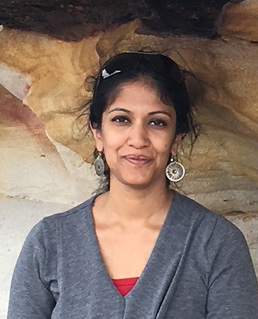
Dr. Gitika Panicker
Gitika Panicker serves as the Lead for HPV Immunology team within the Chronic Viral Diseases Branch, Centers of Disease Control and Prevention, Atlanta, Ga, USA. Trained as a microbiologist, Dr. Panicker received her Ph.D. in Biology from University of Alabama at Birmingham in 2004 where she worked on the development of molecular methods applied to the detection of pathogens like vibrio spp. in environmental samples. She completed her post-doctoral fellowship at CDC, working on proteomic profiling of cervical mucus for detection of biomarkers for early detection of cervical cancer. Currently, Dr. Panicker along with her team focus on evaluating immune responses to HPV infection and vaccination, assay development to interrogate the immune repertoire, alternate vaccine delivery strategies as well novel sample collection methods to aid large-scale studies on HPV. She has contributed to several peer-reviewed articles, and actively collaborates with researchers in the U.S and internationally, investigating the role of HPV antibody response, development of primary standards for HPV serology, training and technology transfer of virus-like particles production and immunological assays, building lab capacity for HPV immunology testing among others.

Dr. Ligia Pinto
Dr. Ligia Pinto is the Director of the Vaccine, Immunity and Cancer Directorate at the Frederick National Laboratory, which includes the Serology Laboratory and the Cancer Immunoprevention Laboratory. Dr. Pinto received her PhD from the University of Lisbon in Portugal in 1995, after several years of research on cellular immunology of HIV infection at the Experimental Immunology Branch, NIH. She continued her postdoctoral studies at NIH where she focused on investigating immunological alterations induced by HIV, HIV vaccine candidates and host protective immune responses controlling HIV replication and associated pathogenesis. In 2001, she joined the Frederick National Laboratory to establish the HPV Immunology Laboratory. The work from her Laboratory has played a critical role in the understanding of the systemic and mucosal immune responses induced by the licensed HPV vaccines in clinical trials and promoted the development of an International HPV Serology Standardization Initiative. The work done by her Lab gave rise to the establishment of two additional FNL-based laboratories: The HPV Serology Laboratory and the Cancer Immunoprevention Laboratory. The HPV Serology Laboratory was established on 2017, to work in partnership with the scientific community to standardize HPV serology testing in the context of vaccine trials, sponsored by NCI and The Bill & Melinda Gates Foundation. The Cancer Immunoprevention Laboratory evaluates and develops new immunoprevention strategies in animal models and novel assays for biomarker research. In March 2020, Dr. Pinto’s Serology Lab started working in the area of SARS-CoV-2 serology, production of standards, and evaluation of commercial serology tests in collaboration with several government agencies including FDA. In addition, she is the FNL Lead for a newly formed network funded by NCI, the Serological Sciences Network. Taken together, Dr. Pinto and her team have had a long history of research excellence at the Frederick National Laboratory and the NIH in the area of immunology of infectious diseases and vaccines for the last 30 years, with over 130 peer-reviewed publications and distinguished awards.

Dr. Jeff Roberts
Dr. Jeff Roberts is the Associate Director for Scientific Affairs in the Office of Vaccines Research and Review. He came to FDA in 2008, serving first as a Medical Officer then as Clinical Branch Chief in the Division of Vaccines and Related Product Applications before assuming the Associate Director role in 2019. During his initial tenure at FDA, Dr. Roberts reviewed the clinical data for multiple vaccine programs at all phases of development. As Clinical Branch Chief, he managed the clinical review of a wide variety of products, including vaccines, allergenic products, phage therapy, and live biotherapeutics. As Associate Director, Dr. Roberts’ focus now includes emerging disease threats and medical countermeasures, use of alternative clinical trial designs and real world evidence to support product development/licensure, and coordinating discussions on vaccine development with other regulatory authorities.
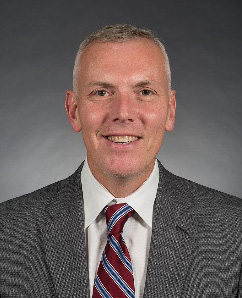
Dr. Richard Roden
Richard Roden was awarded his PhD in biochemistry from the University of Cambridge, UK, in 1992 and received postdoctoral training with Drs. John Schiller and Doug Lowy at NCI. While at the NCI he developed serologic assays for HPV and studied VLP biology. He started his laboratory at Johns Hopkins University in 1998 and has since focused on vaccines targeting HPV L2 and other approaches to prevent and treat gynecologic cancer.
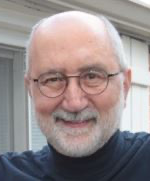
Dr. Alfred Saah
Alfred Saah is Executive Director of Scientific Affairs at Merck Research Laboratories near Philadelphia, Pennsylvania. He attended the University of Maryland, School of Medicine, and the Johns Hopkins University School of Public Health. He subsequently trained and worked at the National Institute of Allergy and Infectious Diseases for 7 years and the Johns Hopkins School of Public Health and School of Medicine, where he was on faculty for 10 years. He is board certified in internal medicine, infectious diseases and in preventive medicine (epidemiology). While at the NIAID, he co-founded the Multi-center AIDS Cohort Study and was its Principal Investigator at Hopkins until moving to the Merck Research Laboratories in 1997. His research and clinical activities throughout his career at NIH, Hopkins and at Merck Research Laboratories include HIV-related therapies and vaccine research, most notably clinical development of the 4-valent and 9-valent HPV vaccines. He currently is Executive Director of Scientific Affairs for Vaccines and heads the Vaccines Merck Investigator-initiated Studies Program.
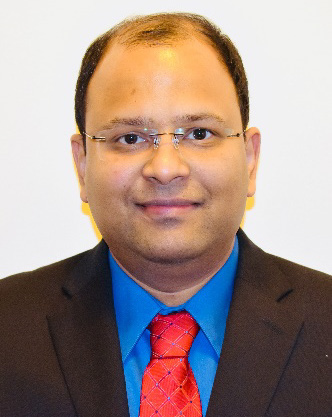
Dr. Vikrant Sahasrabuddhe
Dr. Vikrant Sahasrabuddhe is Program Director in the Division of Cancer Prevention at the National Cancer Institute overseeing prevention clinical research on cervical cancer and other human papillomavirus (HPV)-related cancers. Dr. Sahasrabuddhe provides scientific direction and strategic guidance for efforts on optimization of clinic-based and population-based precision prevention strategies for cervical cancer and other HPV-related cancers and building the evidence base for their implementation in the United States and globally. Dr. Sahasrabuddhe oversees a scientific and programmatic portfolio of grants, cooperative agreements, and contract-funded studies focused on optimizing HPV vaccination (including dosing and delivery of currently licensed prophylactic HPV vaccines, and early phase trials of next generation vaccines), improving cervical and anogenital cancer screening and triage (novel biomarkers, imaging modalities, and screening algorithms), and innovations in HPV-related precancer treatment (novel immunotherapeutic and non-surgical approaches). A substantial emphasis in this portfolio is on individuals at high-risk of HPV-related cancers, such as those with human immunodeficiency (HIV) infection/immunosuppression, as well as on populations experiencing health disparities. Dr. Sahasrabuddhe directs two major programs: the NCI Cervical Cancer ‘Last Mile’ Initiative, focused on expanding cervical cancer screening access to under-screened populations via self-collected sampling-based HPV testing approaches, and the US-Latin American-Caribbean HIV/HPV-Cancer Prevention Clinical Trials Network (ULACNet), focused on collaborations to optimize approaches for prevention of HPV-related cancers in people living with HIV. He also serves as a NCI project scientist on the Cancer Prevention Clinical Trials Network (CP-CTNet) and on the Cancer Moonshot-funded Accelerated Cervical Cancer Control Initiative. In addition, he is a member of the World Health Organization (WHO)’s Guideline Development Group for cervical cancer screening and treatment recommendations, and advises the US President’s Emergency Plan for AIDS Relief (PEPFAR) program for the expansion and evaluation of cervical cancer screening and treatment services nested within HIV care settings. Dr. Sahasrabuddhe received his medical degree from the University of Pune in India, his master’s and doctorate degrees in public health from the University of Alabama at Birmingham, and he completed fellowship training in epidemiology at the Johns Hopkins University and in the NCI’s intramural program. Prior to joining NCI, Dr. Sahasrabuddhe served on the faculty at Vanderbilt University, most recently as Research Associate Professor of Medicine. He has published widely across a broad spectrum of clinical, epidemiologic, and implementation research areas on infection associated cancers with high or rising incidence and mortality burden.

Dr. Anne Schuind
Anne Schuind, MD, trained in pediatric infectious diseases and is a specialist in vaccinology. With over 20 years of experience in clinical research and development with GSK Vaccines, she made important contributions to the development of several vaccines including rotavirus, DTaP-IPV, HPV, Influenza and Zoster vaccines. Dr. Schuind joined the Center for Vaccine Innovation and Access at PATH in July of 2020 as Initiative Team Leader for HPV Vaccines.
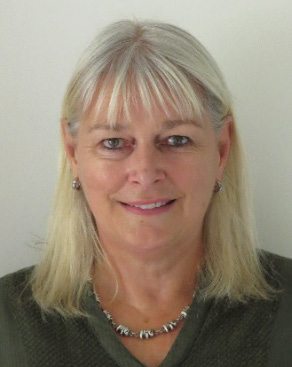
Dr. Deborah Watson-Jones
Deborah Watson-Jones is Professor of Clinical Epidemiology & International Health in the Clinical Research Department of the London School of Hygiene and Tropical Medicine (LSHTM). She qualified in Zoology and Medicine from Oxford University and trained in epidemiology at LSHTM. She has been based in Tanzania since 1995. Her research interests include the epidemiology and prevention of HPV and related infections and HPV vaccine and Ebola vaccine and COVID-19 research. She has study sites in Tanzania, Kenya, Uganda, Sierra Leone and DRC. She co-led the first trial of HPV vaccines in sub-Saharan Africa and led on a cluster-randomised trial of HPV delivery strategies in Tanzania and on a study evaluating lessons learnt from HPV vaccine introductions in low- and middle-income countries. She is currently leading on several Ebola vaccine trials and on a clinical trial (the DoRIS trial) to evaluate the immunogenicity of single-dose HPV vaccine in Tanzanian girls. She is a member of the Single-Dose HPV Vaccine Evaluation Consortium and a member of the Africa CDC SAGE committee.

Dr. Dianna Wilkinson
Dianna Wilkinson earned her PhD in Biochemistry at University College London in 2000. She then joined the University of Connecticut Health Center as a post-doctoral research fellow investigating the cellular biology of Herpes Simplex Virus Type I infection, particularly with regards to the cellular response to DNA damage. Dr Wilkinson has worked at NIBSC since 2006 and currently is Principal Scientist in the inactivated viral vaccines (IVV) group in the Division of Virology. Her lab is focused on batch release testing as well as developing assays and reference reagents to improve the quality control and standardization of inactivated and recombinant viral vaccines. These vaccines include those that protect against human papillomavirus (HPV), rabies and hepatitis B virus (HepB). The IVV group’s regulatory and scientific activities include 1) the independent control testing and manufacturing review of inactivated and subunit vaccines for use in the United Kingdom and on behalf of WHO for procurement by UN Agencies and other organizations (WHO prequalified vaccines); 2) collaboration in the 3R initiative for developing an in vitro alternative to the rabies mouse challenge assay for vaccine potency; 3) investigation of suspected falsified vaccines; 4) contributing to cross-agency efforts for the independent testing of COVID vaccines; 5) laboratory training of visiting scientists in vaccine independent testing. Dr Wilkinson has advised on the drafting of WHO Technical Report Series 962, “Recommendations to assure the quality, safety and efficacy of recombinant HPV virus-like particle vaccines” and has facilitated WHO workshops for the implementation of HPV vaccines. She has been the study lead for a number of WHO International Collaborative Studies to establish WHO International Standards (IS) for use in the standardization and control of assays for the prevention, diagnosis or treatment of viral diseases. In the field of HPV, these studies have resulted in the establishment of 1st ISs for HPV16 and 18 antibodies for use in serology assays and 1st ISs for the 9 HPV DNA types for use in molecular assays. Dianna is currently overseeing the WHO Collaborative Study for the development and evaluation of candidate ISs for HPV antibodies against low-risk types 6 and 11 and high-risk types 31, 33, 45, 52 and 58.
